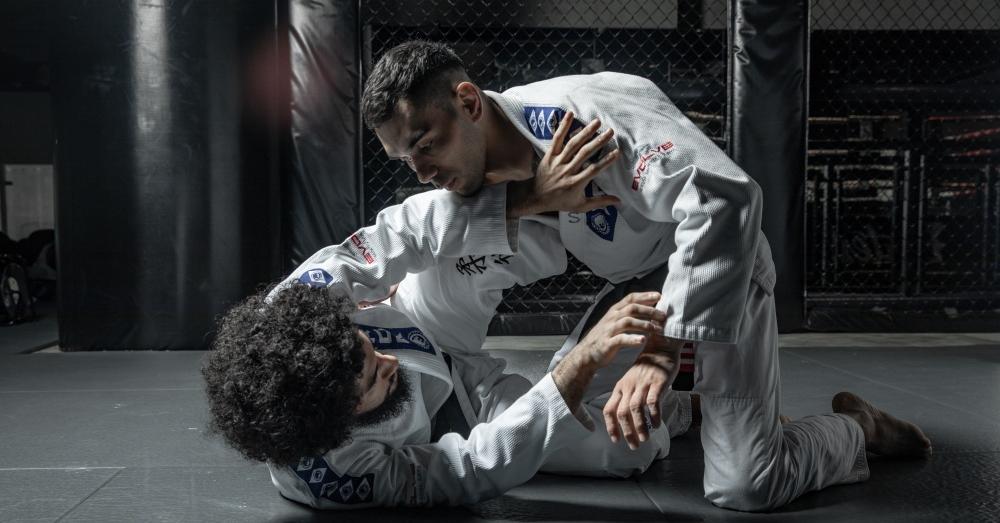Introduction
In martial arts, Brazilian Jiu-Jitsu (BJJ) is a distinct and powerful discipline that emphasises technique, leverage, and strategic thinking over brute strength. Known as the “gentle art,” BJJ offers a unique approach to self-defence, focusing on ground fighting and submission holds to neutralise opponents. This transformative martial art has gained global recognition for its effectiveness in promoting physical fitness, mental resilience, and personal growth.
The Philosophy Behind the Gentle Art
Embracing the Underdog
At its core, Brazilian Jiu Jitsu embodies the philosophy that even the smaller, weaker individual can prevail in a confrontation by using technique, leverage, and intelligence. This principle democratises self-defence, making it accessible to everyone, regardless of size or strength. BJJ teaches practitioners to think on their feet — or, more accurately, on the ground — turning perceived disadvantages into strategic advantages.
The Path of Continuous Learning
BJJ is not just a set of techniques; it’s a lifelong learning and personal development journey. Practitioners, known as “jiu-jitters,” are continually challenged to improve their physical capabilities and mental fortitude. The gentle art instils humility, patience, and respect, as progress is marked not by the ability to dominate others but by self-improvement and the pursuit of mastery.
The Techniques of Brazilian Jiu-Jitsu
Ground Fighting: The Great Equalizer
The hallmark of Brazilian Jiu Jitsu is its focus on ground fighting. This approach levels the playing field, diminishing the advantages of size and strength that stand-up fighting styles might favour. By bringing the fight to the ground, BJJ practitioners employ a variety of holds, locks, and submissions, such as arm bars, chokes, and leg locks, to control or neutralise their opponents.
The Art of Submission
Submission techniques are the endgame in Brazilian Jiu Jitsu, representing the pinnacle of strategic combat. These moves compel an opponent to “tap out,” or surrender, due to a lock or choke that could cause significant pain or injury if applied with full force. The beauty of these techniques lies in their remarkable efficiency; they require minimal effort for maximum effect, perfectly embodying the essence of gentle art. This efficiency demonstrates the power of leverage and technique over brute strength and emphasises the importance of precision, timing, and understanding of human anatomy. By mastering these techniques, practitioners learn to apply force intelligently and judiciously, ensuring safety while effectively neutralising threats. This aspect of Brazilian Jiu Jitsu highlights its deep tactical layers and emphasises control, patience, and respect for the opponent.
Sparring: The Laboratory of BJJ
Sparring, or “rolling” as colloquially known in the BJJ community, is where theory meets practice. It’s a friendly yet competitive way to test skills, experiment with strategies, and learn from victories and defeats. Rolling encourages adaptability and improvisation, critical components of the BJJ mindset.
The Global Impact of Brazilian Jiu-Jitsu
From its roots in Brazil, BJJ has spread across the globe, creating a vibrant and diverse community. It’s not uncommon to find gyms and academies bustling with people from all walks of life, drawn together by their passion for the gentle art. Competitions and tournaments at local, national, and international levels allow practitioners to showcase their skills, fostering camaraderie and mutual respect among athletes.
Beyond Self-Defense: The Lifestyle of BJJ
Brazilian Jiu-Jitsu transcends the realm of self-defence; it’s more than just a martial art—it’s a lifestyle that shapes character and philosophy beyond the mats. The discipline, focus, and perseverance required on the mat often translate into other areas of life, empowering individuals to tackle challenges with confidence and grace. The lessons learned in patience, strategy, and adaptability are invaluable, fostering a mindset that approaches problems with calmness and analytical thinking. Furthermore, the bonds formed through shared struggle and achievement create a sense of community and belonging that profoundly enriches the practice. This camaraderie extends outside the gym, where practitioners support each other in personal and professional endeavours, building a network of friends who are more like family. Brazilian Jiu-Jitsu offers a comprehensive approach to personal development, intertwining physical prowess with mental strength and emotional resilience.
Conclusion
Brazilian Jiu-Jitsu offers a unique and practical approach to self-defence, emphasising skill over strength and intellect over aggression. But beyond the techniques and tactics lies a more profound philosophy that promotes personal growth, resilience, and respect for others. Whether you’re looking for a way to protect yourself, a path to physical fitness, or a lifelong learning journey, the gentle art of BJJ has something to offer—the power of Brazilian Jiu-Jitsu.
